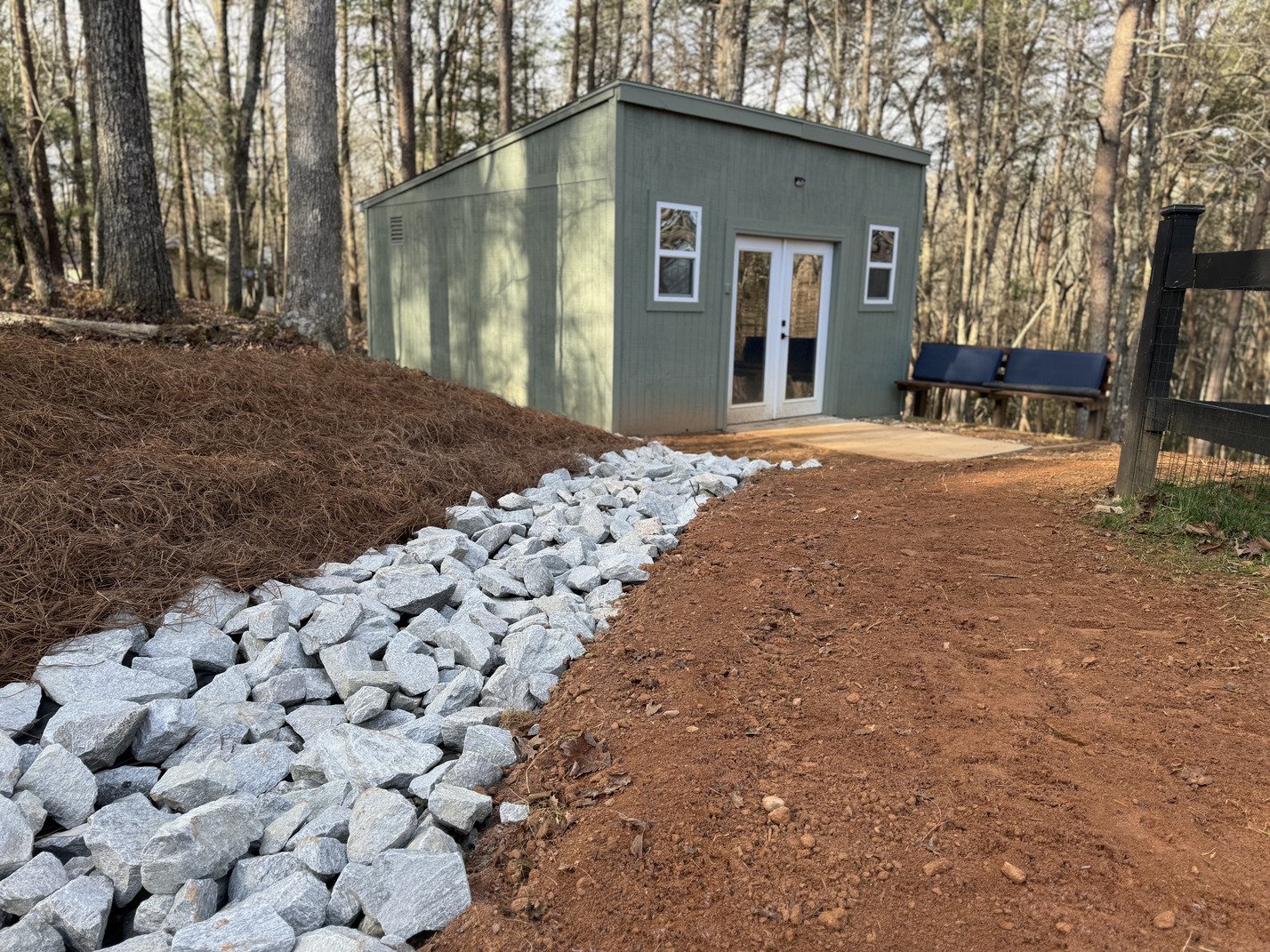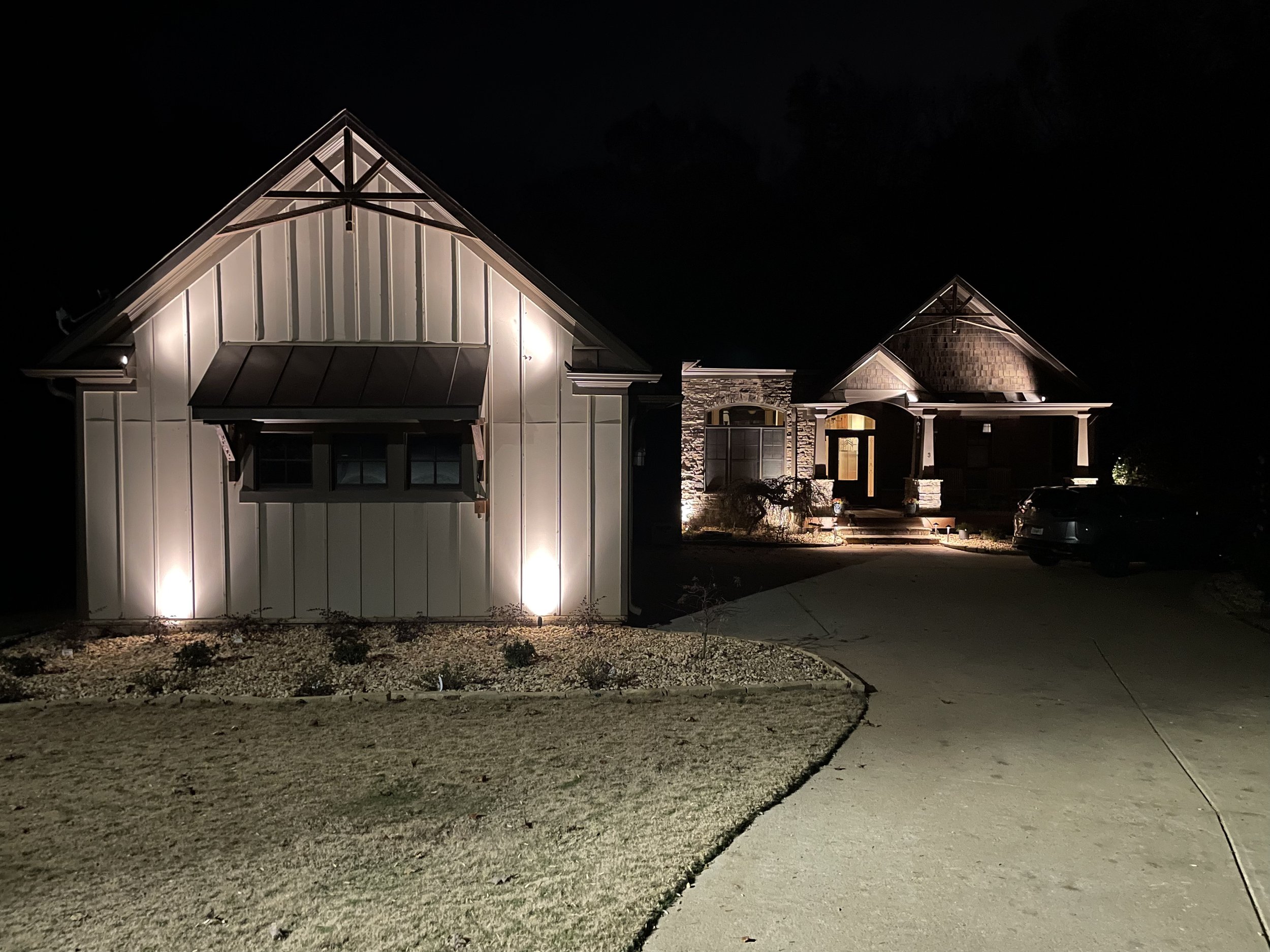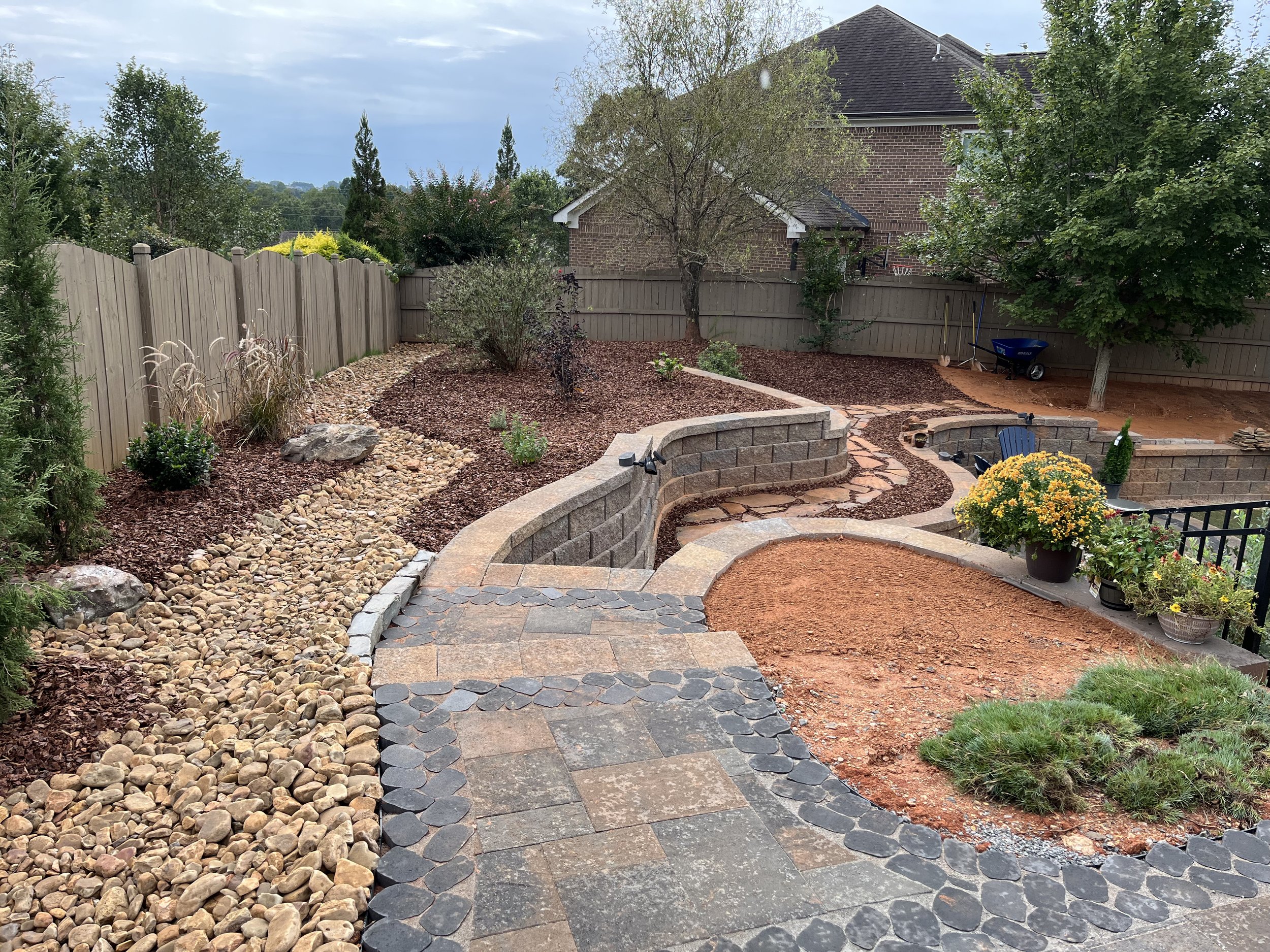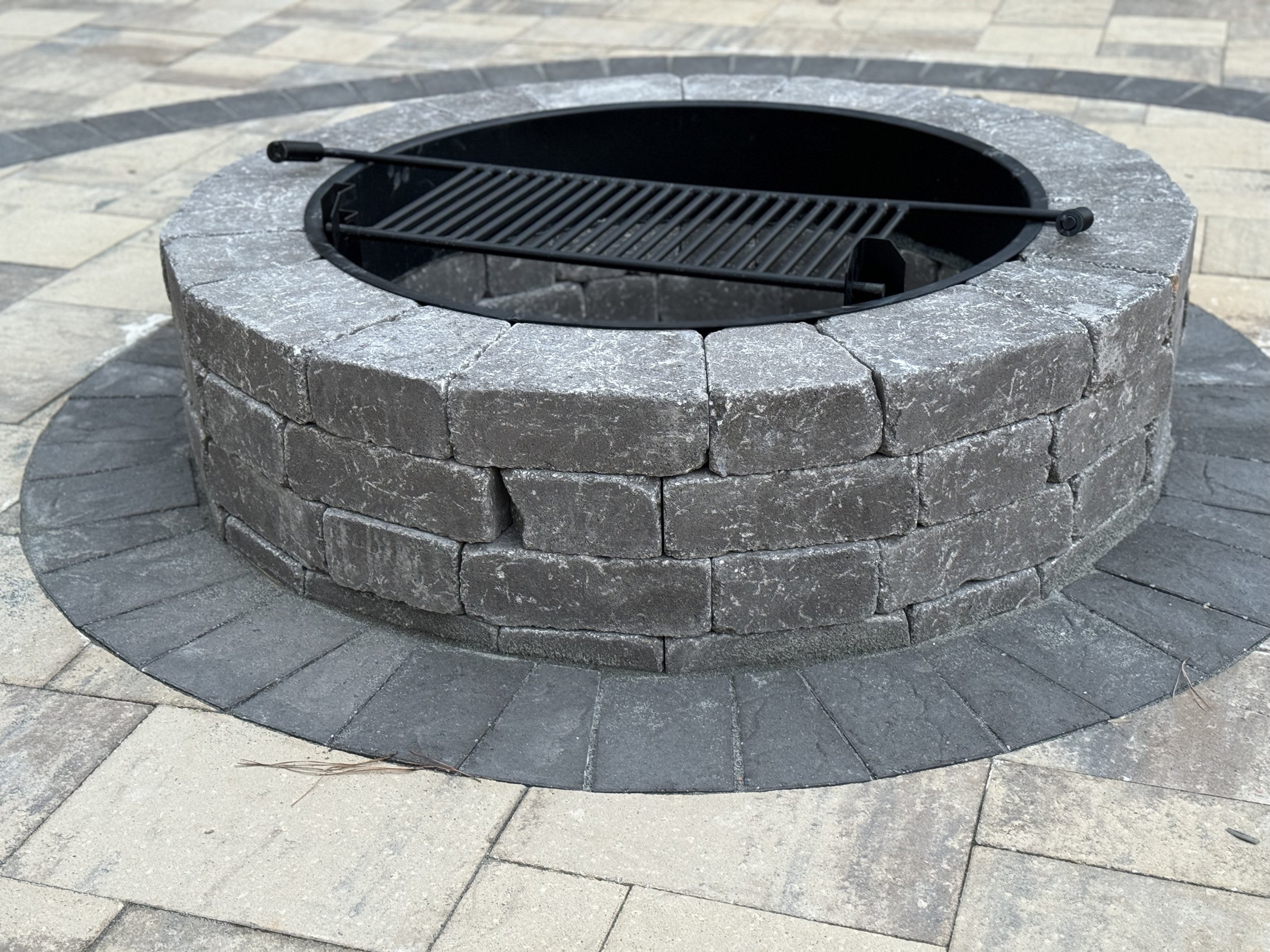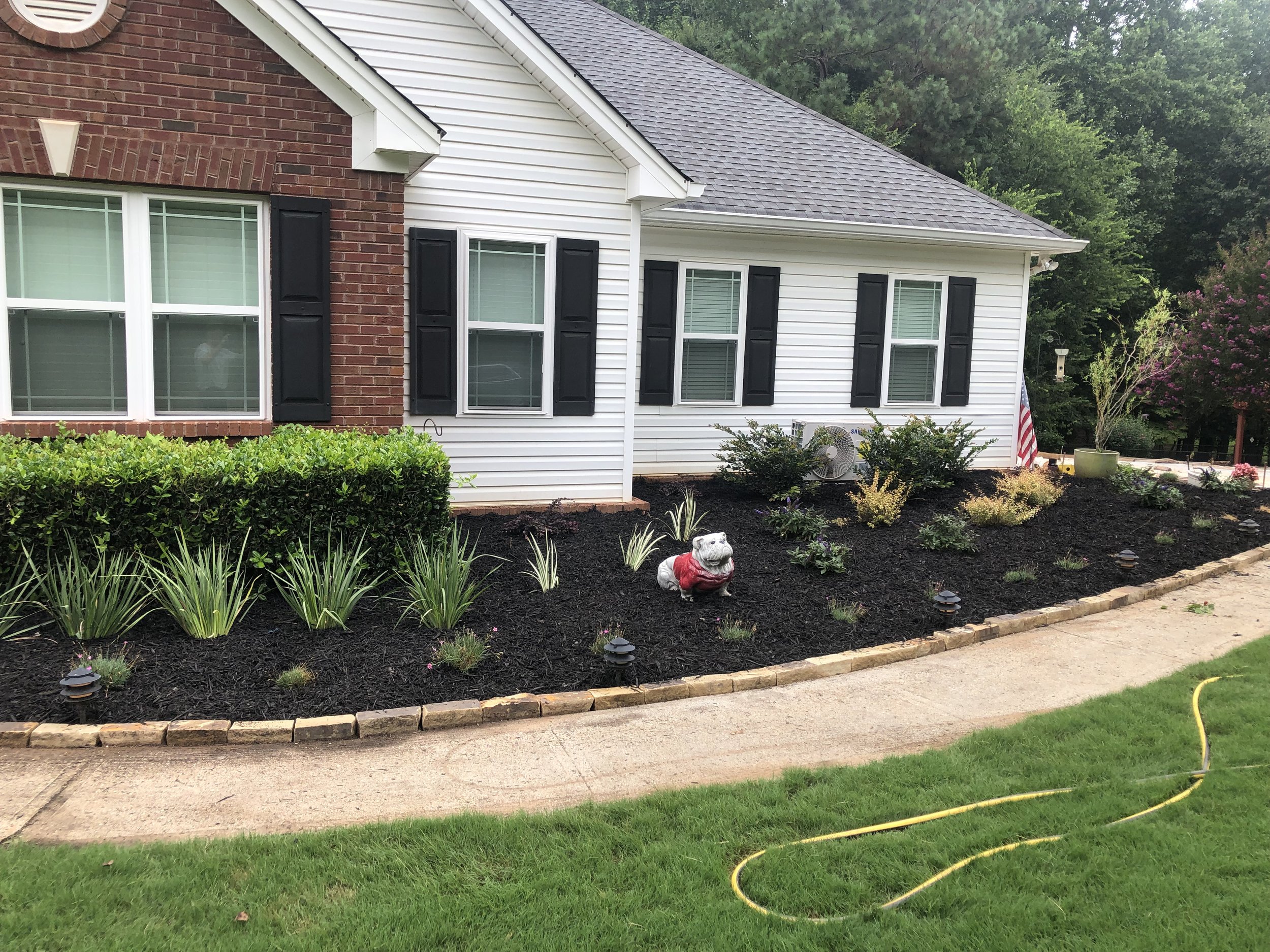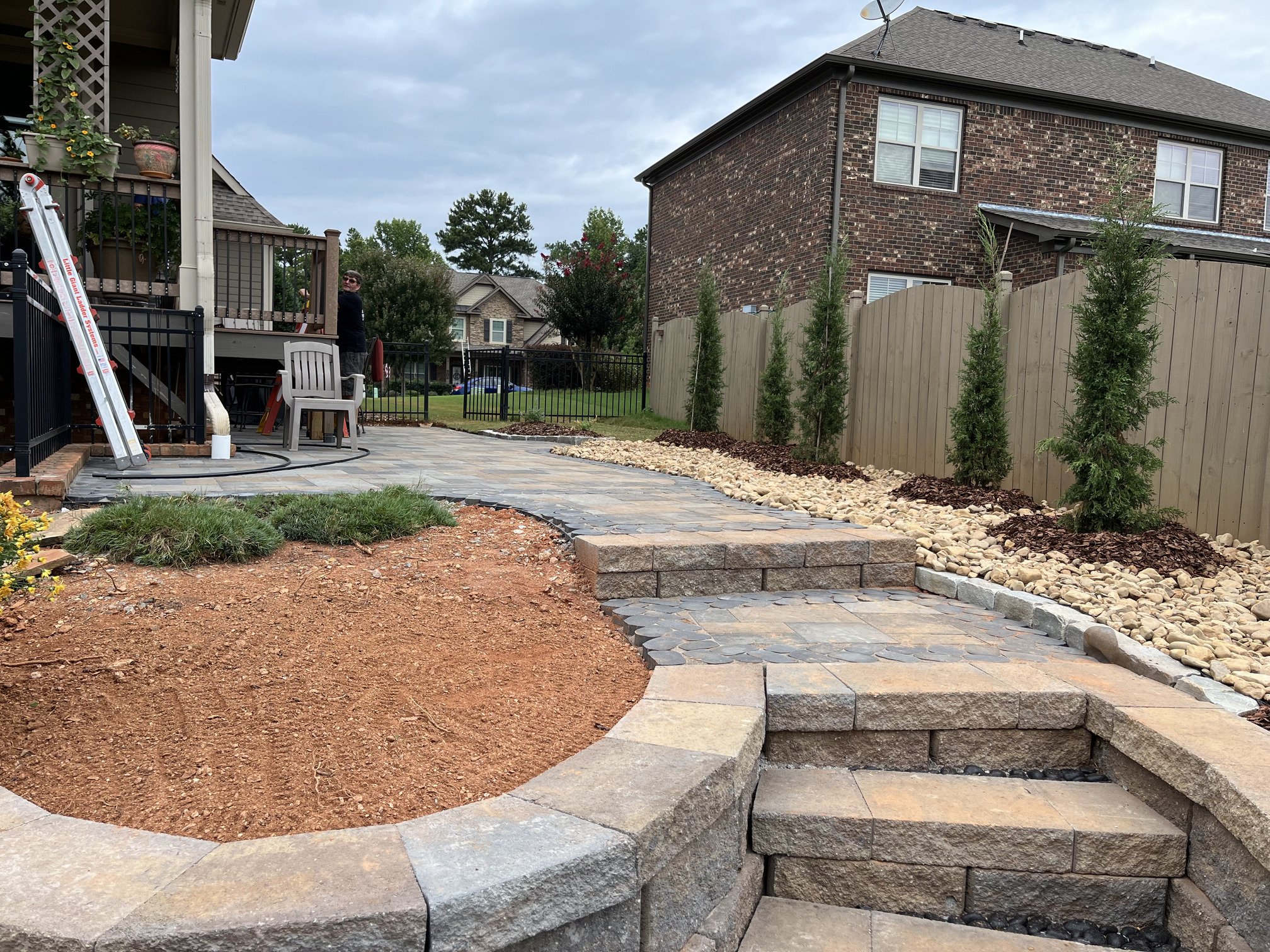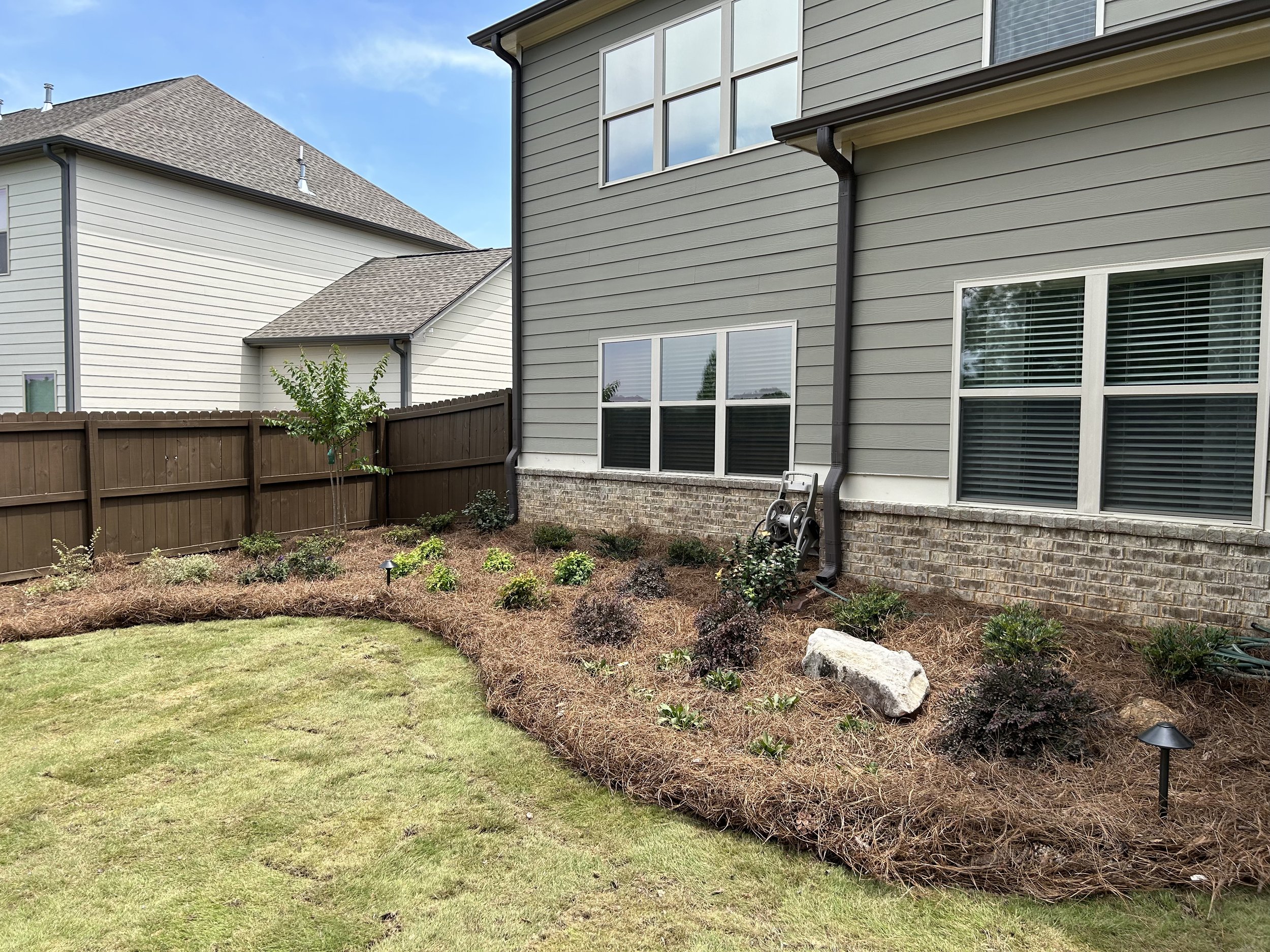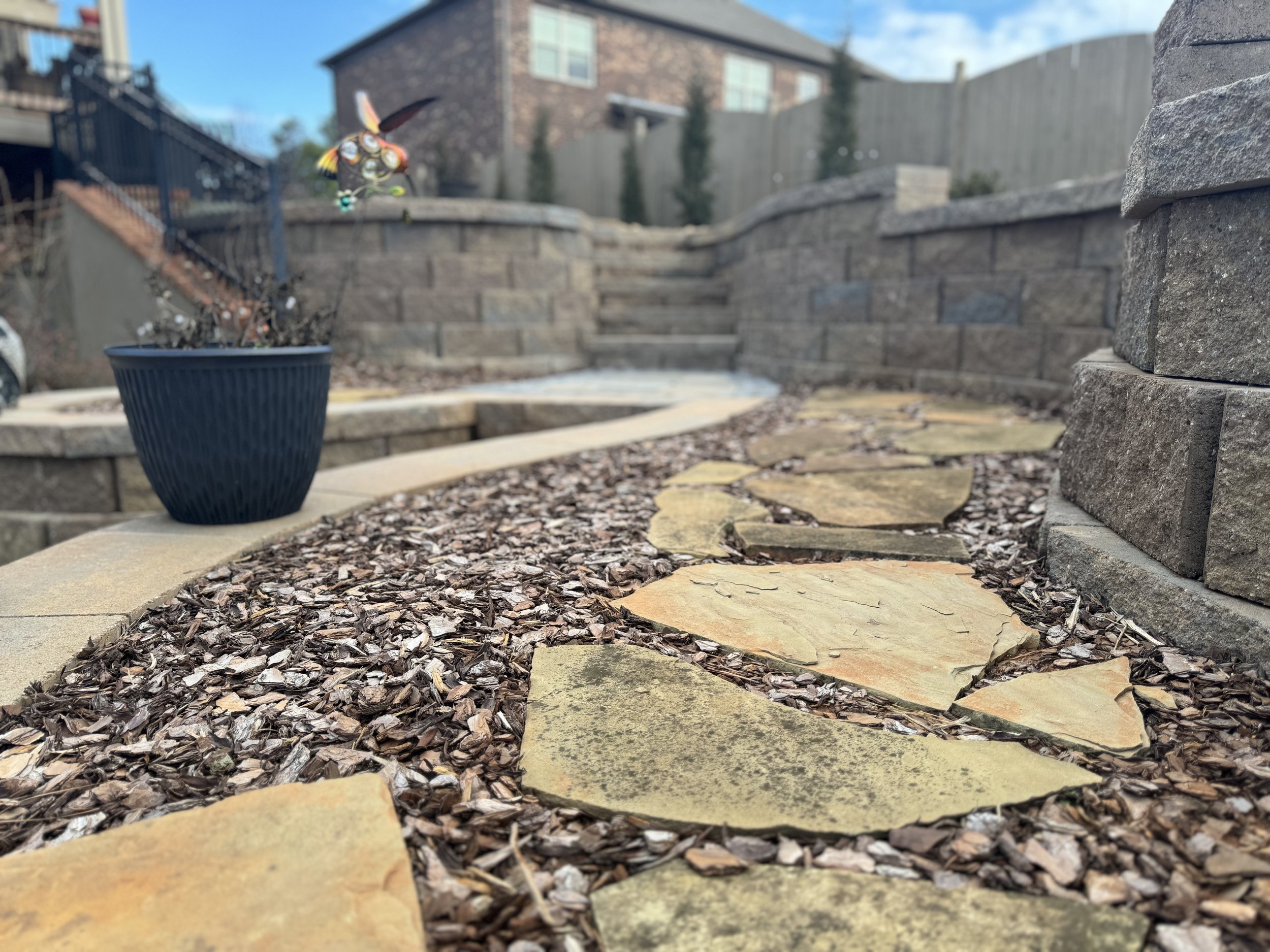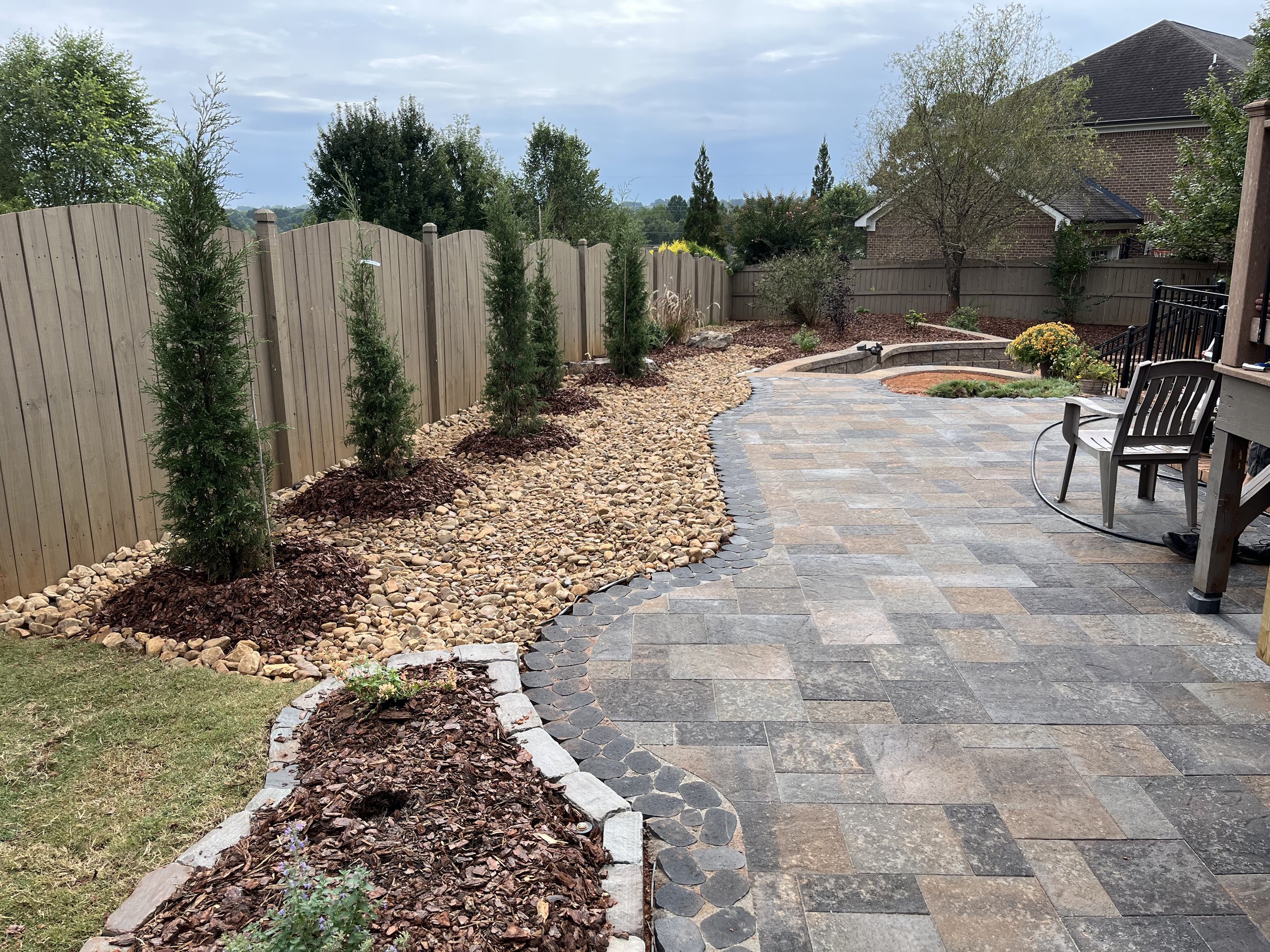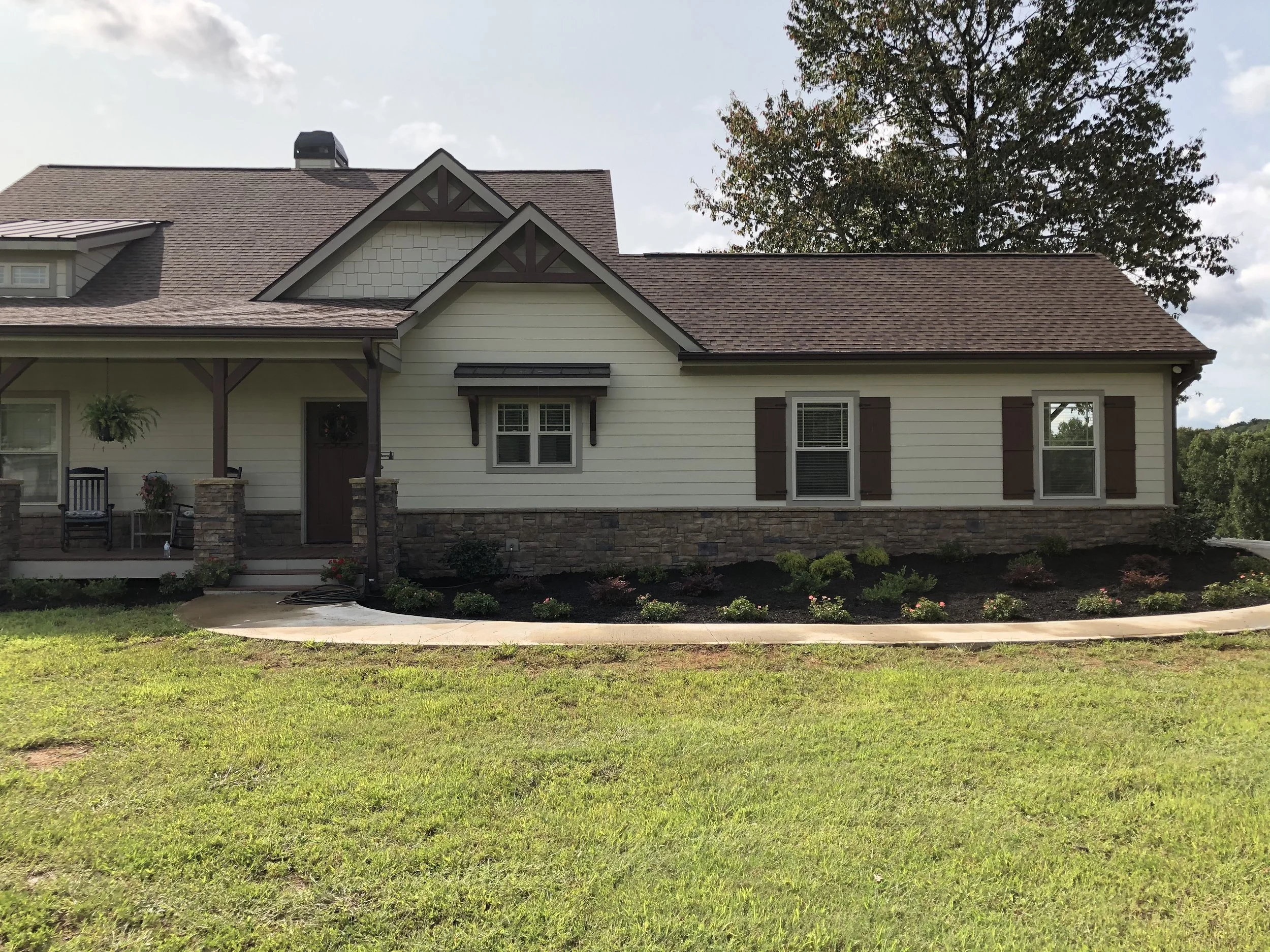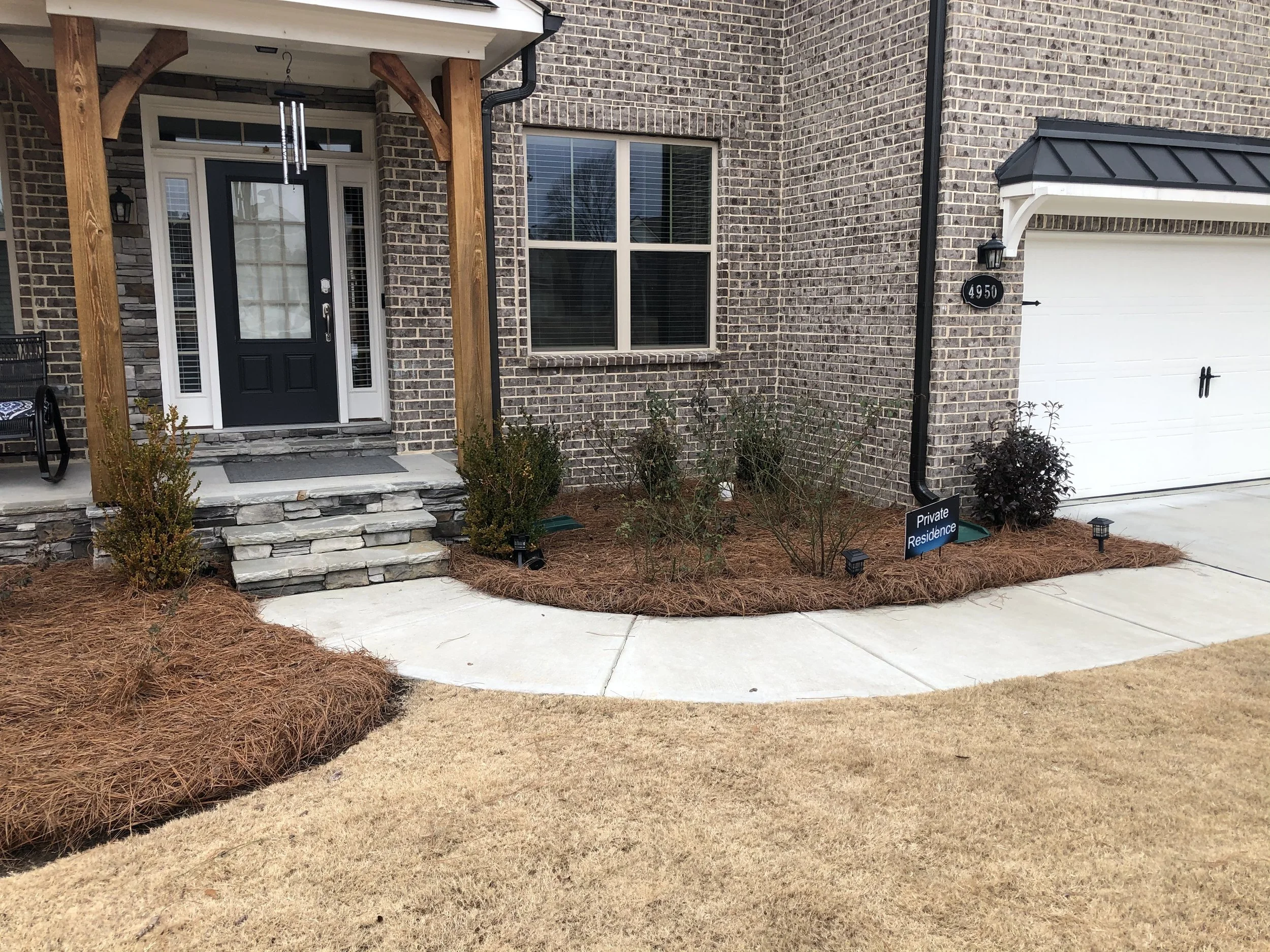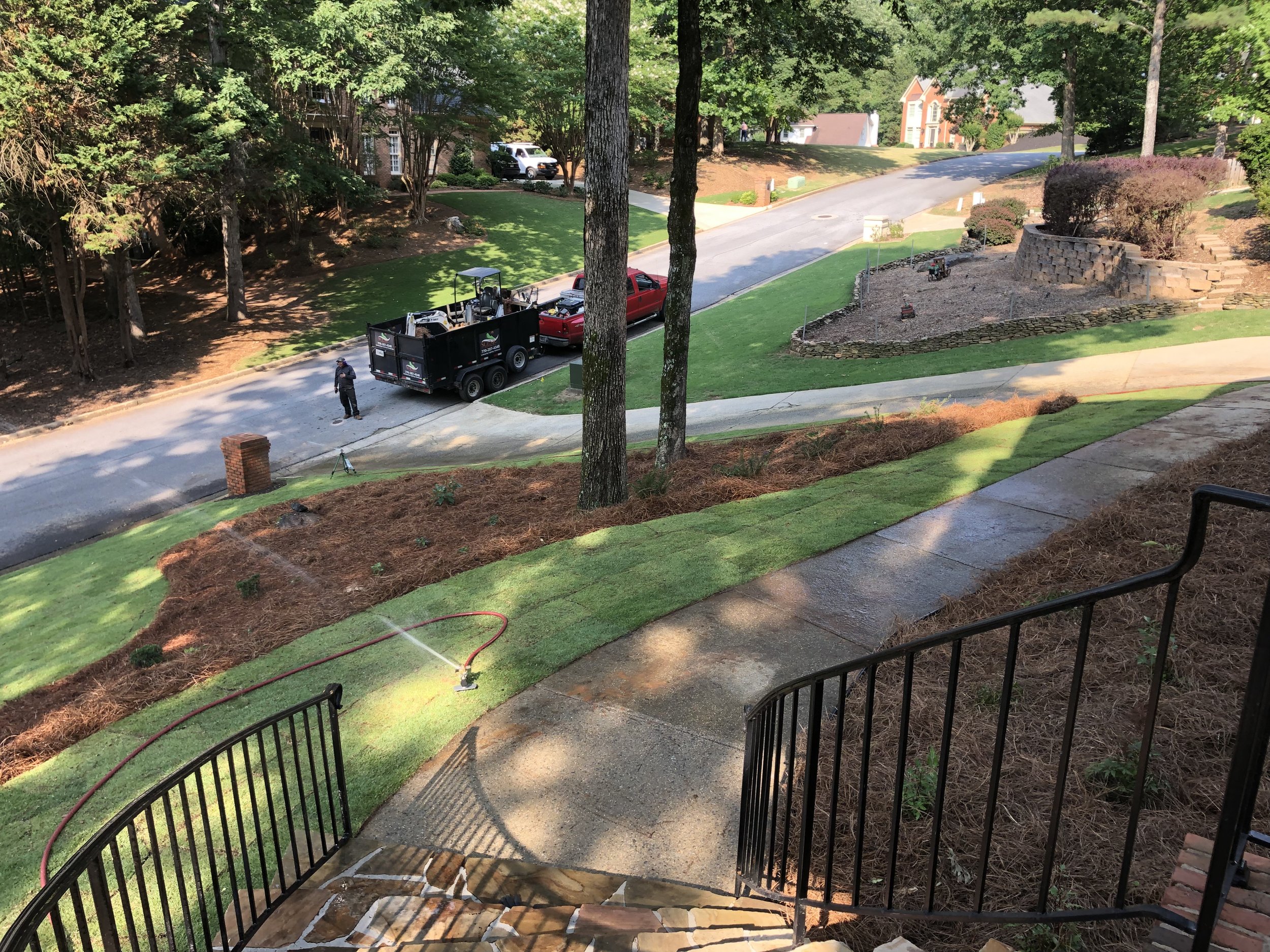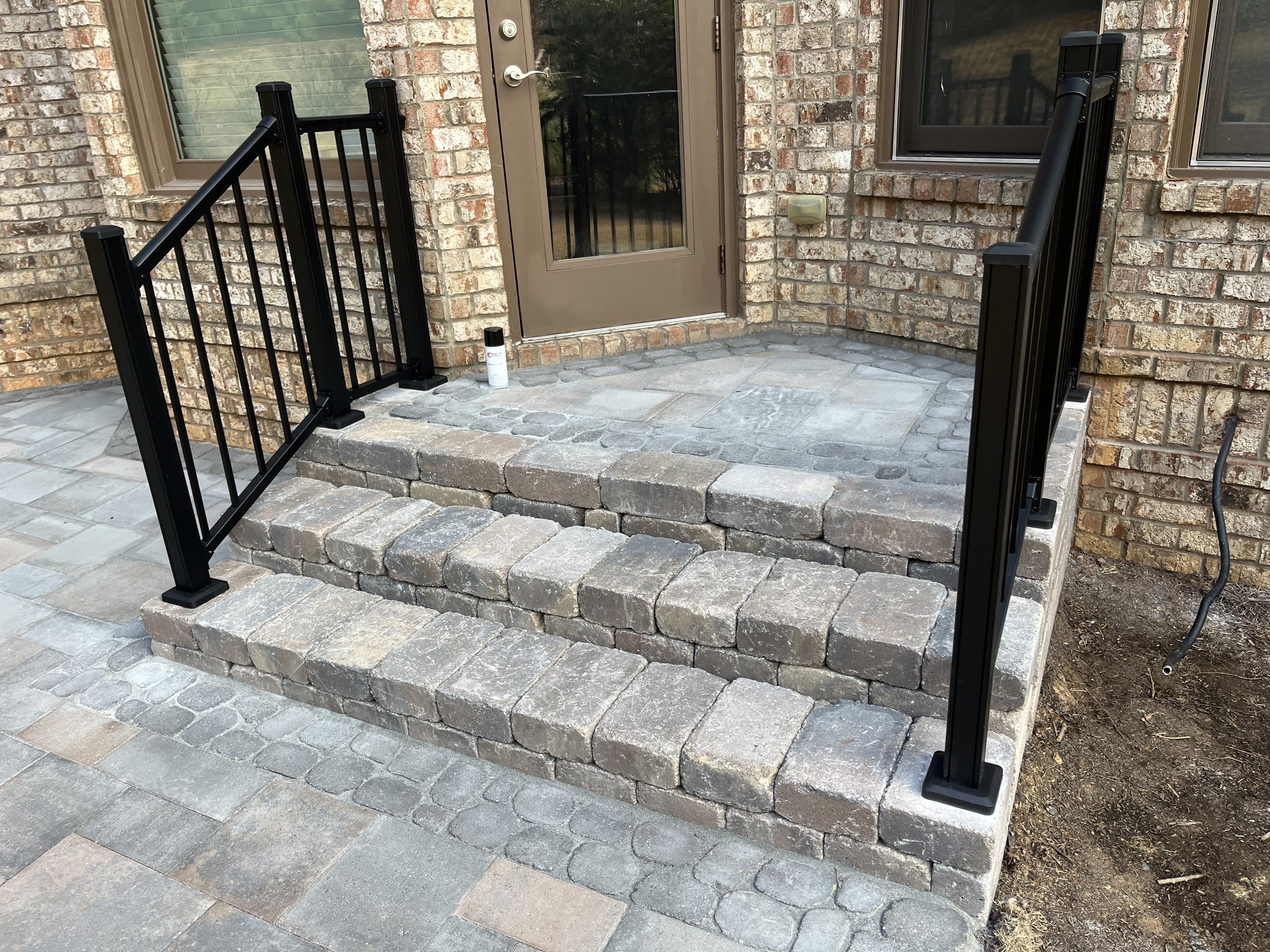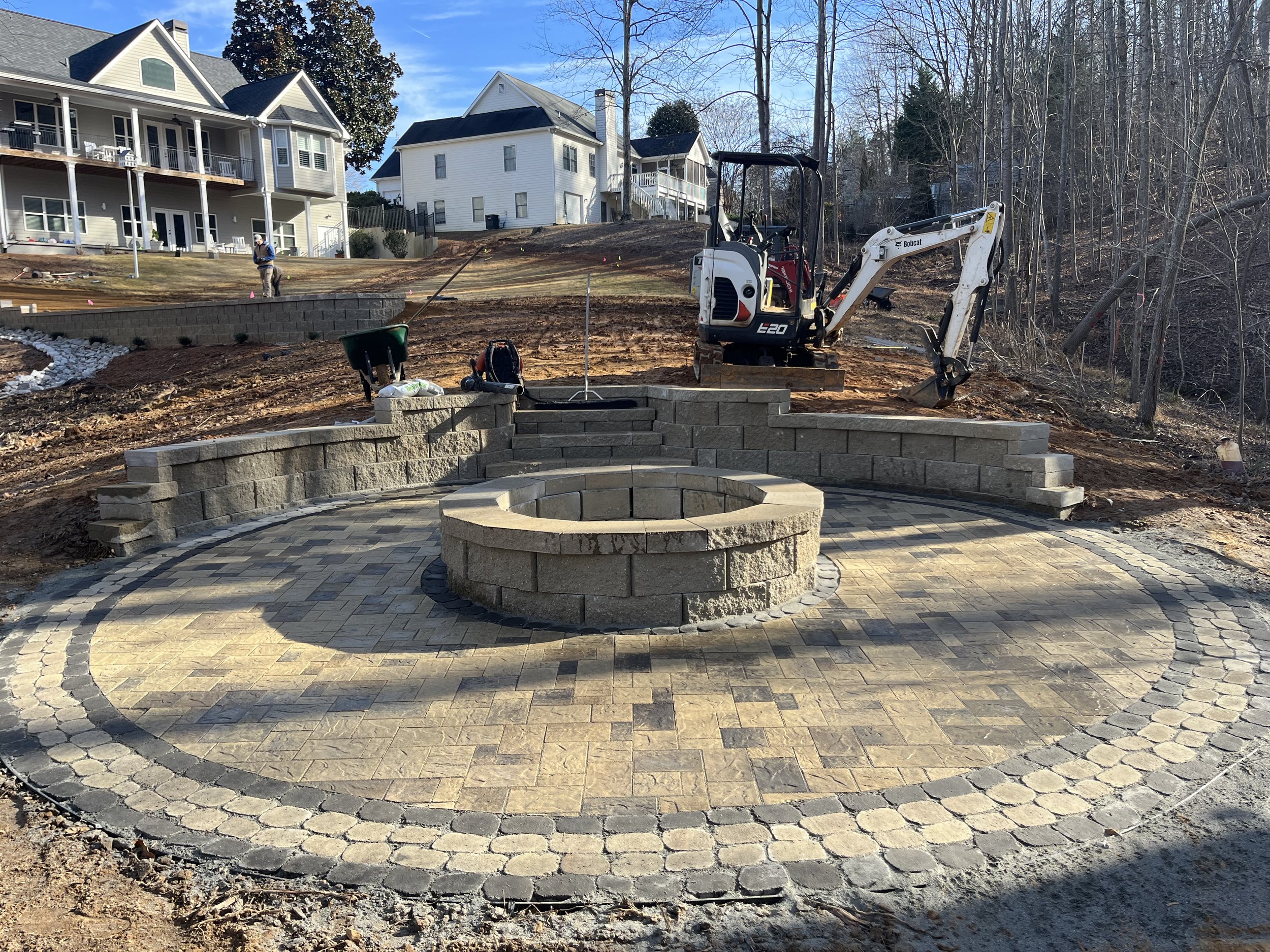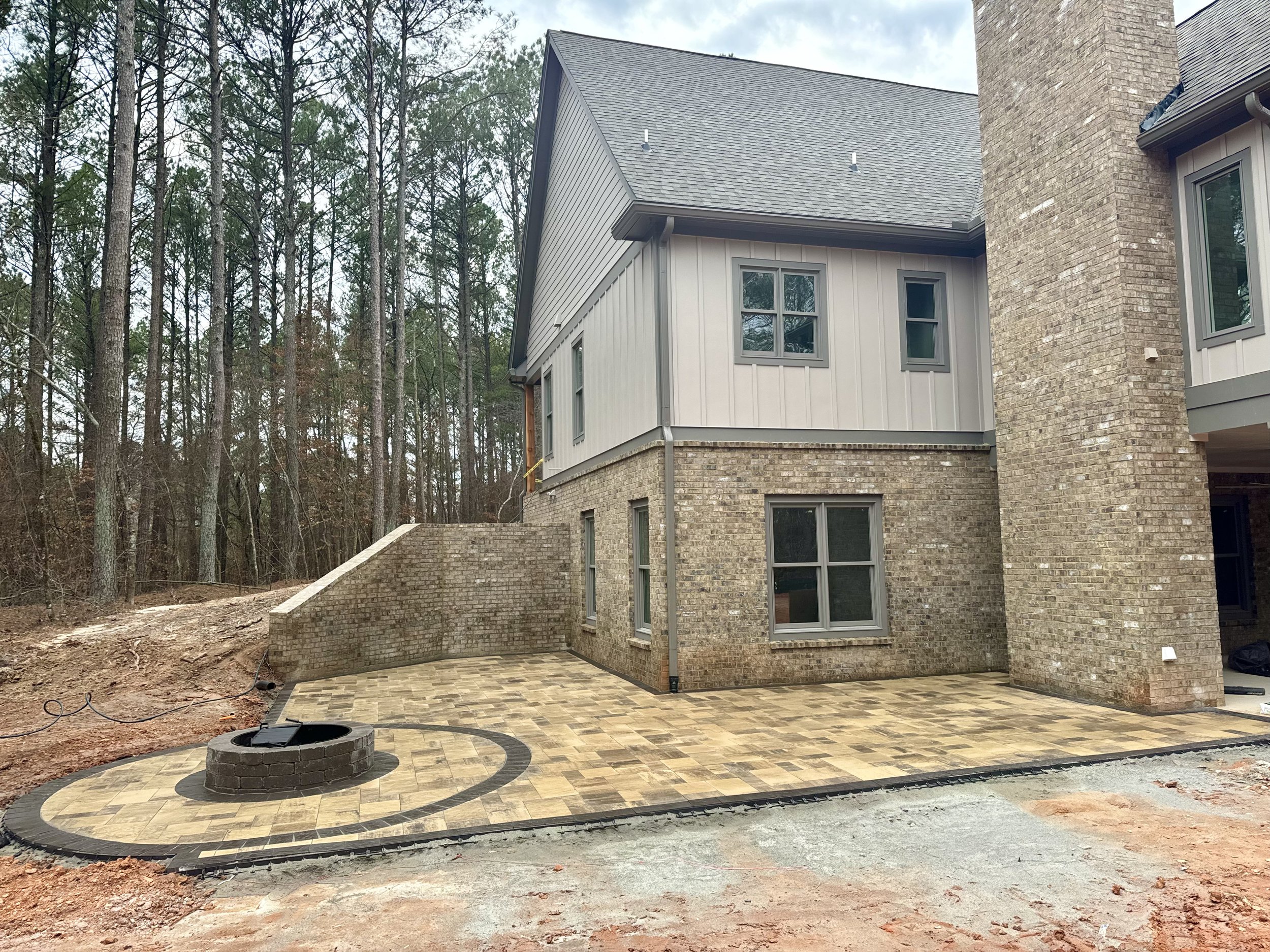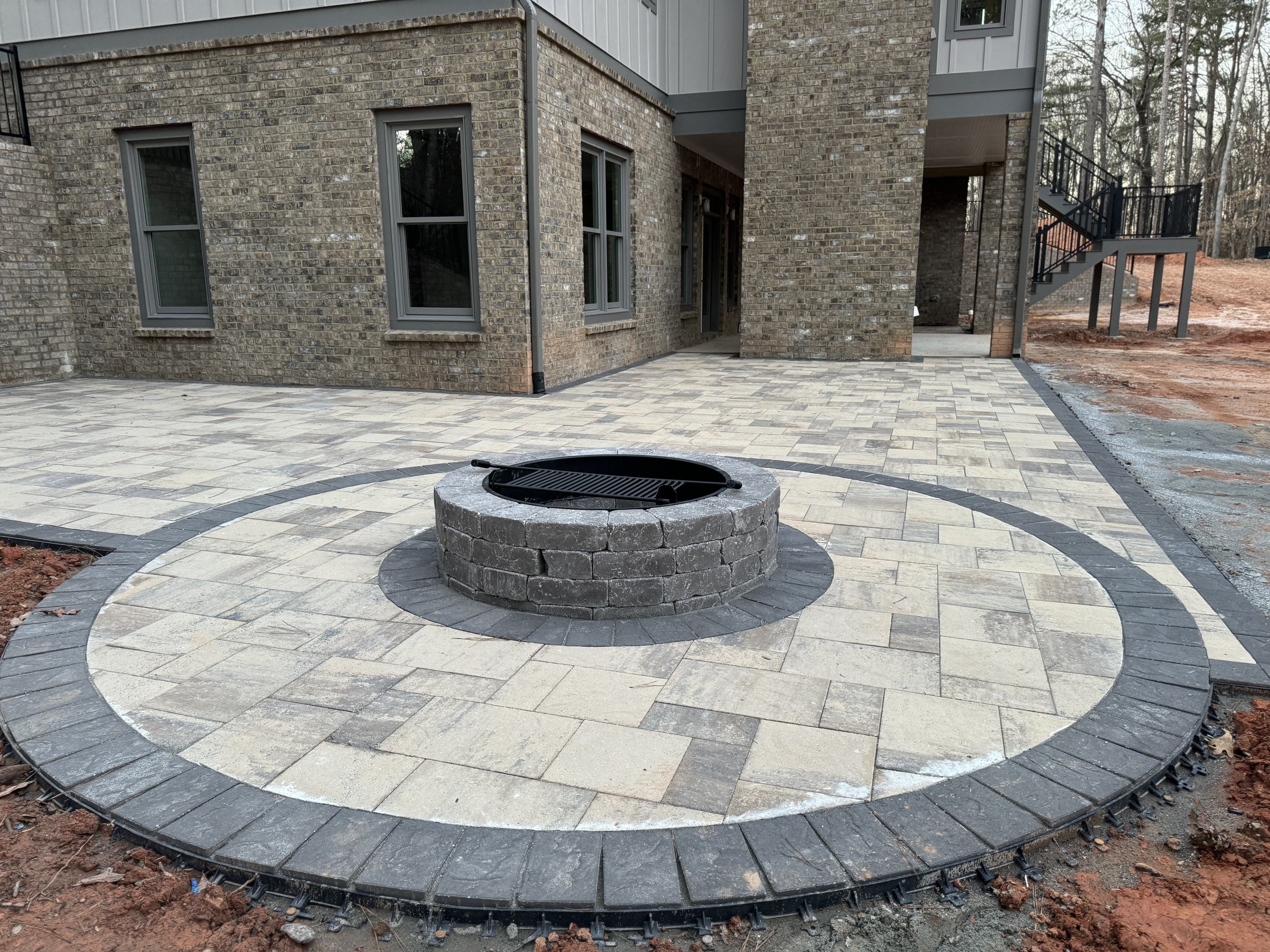
Irrigation Systems in Gainesville, Georgia
Shrubs, grasses, flowers, and trees may differ in size and appearance, but most plants need a steady water supply. To maximize the impact of watering while minimizing water waste, homeowners turn to modern irrigation systems, like sprinklers or underground lines feeding water directly to plants and grass. They’re huge time-savers, cutting hours off annual yard maintenance.
-
However, because landscape systems can be complex, homeowners may benefit from professional design and construction to ensure the best results. Understanding landscape design, soil conditions, and plant needs helps a professional service maximize the impact of the irrigation systems and reduce the chances that an area may be over or under-watered.
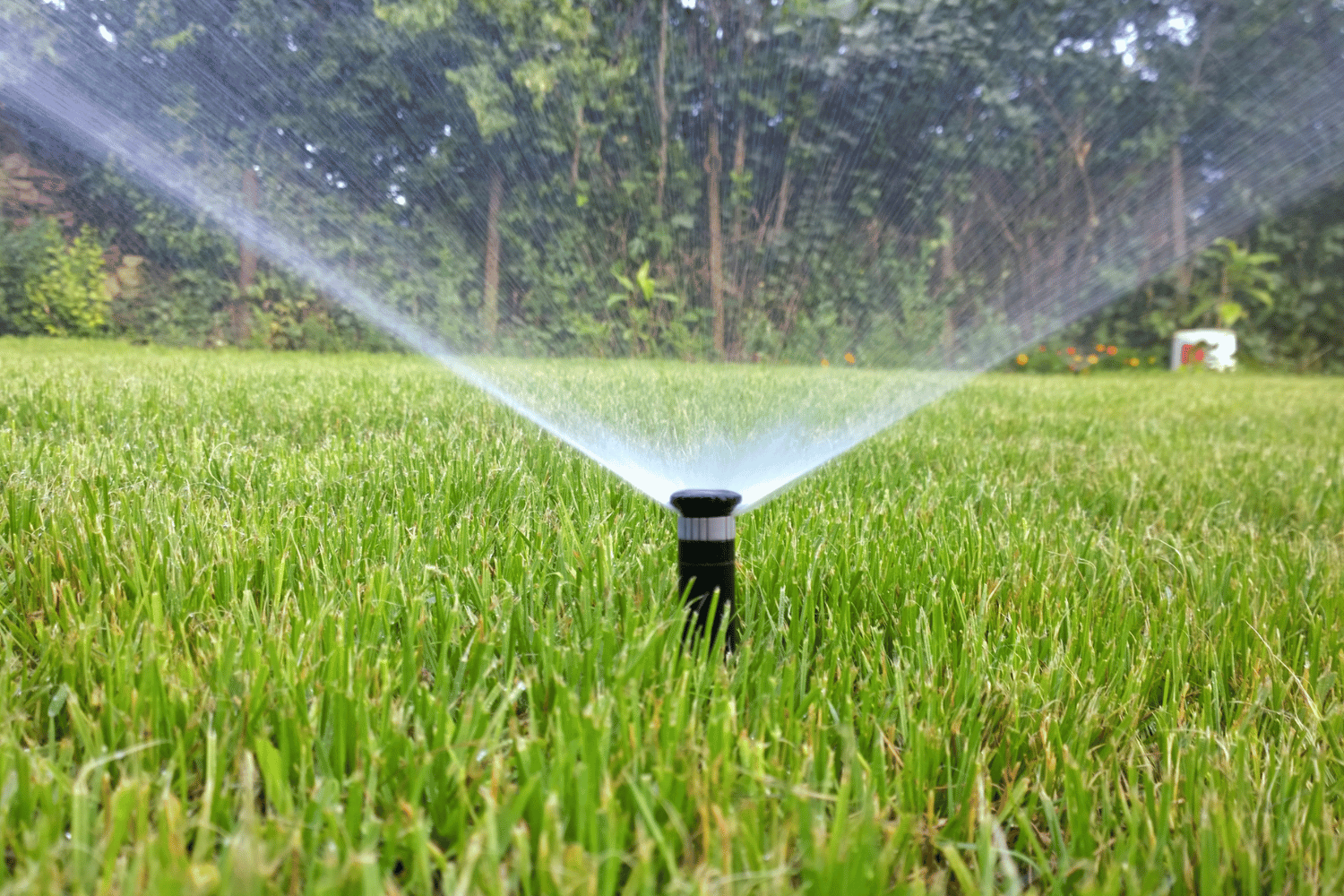
Benefits of landscape irrigation
-
Homeowners can save the time they usually have to spend watering their plants with an irrigation system. These systems may be fully manual or entirely autonomous, with connectivity to the internet, which allows the system to water based on rain accumulation, temperature, and other factors.
-
While there are some initial setup costs, irrigation systems save users money over time, cutting down on unnecessary water waste, reducing utility bills, and adding value to the home.
-
Since irrigation systems are more efficient and economical than spraying yards with hoses, they’re great for the environment. It’s an ideal solution for homeowners looking to live more sustainably.
-
With an irrigation system watering plants and grasses daily, homeowners can enjoy lush green lawns and healthy plants with minimal risks of bare and barren patches or weeds and diseases.
Our Reviews
Our Service Area in Georgia
Gainesville, Cornelia, Clarksville, Cleveland, Lula, Jefferson, Dawsonville, Dahlonega, Buford, Suwanee, Cumming, Duluth, Alpharetta, Commerce
Schedule a Free Consultation
For irrigation system design and construction in the Gainesville area, we offer affordable prices and a friendly approach to make it easy for every homeowner to have their dream yard. Give us a call today for a free consultation.
-
What is an irrigation system?
An irrigation system is a network of components created to supply water to plants and lawns efficiently and effectively.
What are the different types of irrigation systems?
Types include sprinkler systems, drip irrigation systems, soaker hoses, and subsurface irrigation.
How do I choose the right irrigation system for my landscape?
Consider factors like the types of plants, soil conditions, water availability, and the size of the area to be irrigated. We can help you determine the best system based on these factors.
What are the benefits of installing an irrigation system?
Benefits include efficient water use, reduced manual watering effort, consistent watering schedules, and healthier plants.
Can an irrigation system be customized for different types of plants?
Yes, systems can be tailored to meet the needs of various plant types, including lawns, shrubs, flowers, and vegetable gardens.
How does a sprinkler system work?
A sprinkler system utilizes a network of pipes and sprinklers to distribute water in a controlled manner over a designated area.
What is drip irrigation, and how does it work?
Drip irrigation delivers water directly to the root zone of plants through a web of tubing and emitters, minimizing water waste.
What are the advantages of drip irrigation?
Advantages include water conservation, reduced weed growth, targeted watering, and improved plant health.
How do I know if my lawn needs an irrigation system?
An irrigation system might be beneficial if your lawn requires frequent manual watering, has uneven growth, or suffers from dry spots.
What factors should I consider when installing an irrigation system?
Factors include soil type, plant water needs, landscape layout, water pressure, and local climate conditions.
How do you design an irrigation system?
We assess your landscape, determine water requirements, plan the layout, and select appropriate components to ensure efficient coverage.
What is a rain sensor, and why is it important?
A rain sensor detects rainfall and can automatically turn off the irrigation system to avoid overwatering during or after rain events.
Can I control my irrigation system remotely?
Many modern systems offer remote control options through smart controllers and mobile apps.
What is the cost of installing an irrigation system?
Costs vary based on factors like system type, size, and complexity. Call us for a detailed estimate tailored to your needs.
How long does it take to install an irrigation system?
Installation time depends on the system's size and complexity but normally ranges from a few days to a week.
How often should I water my lawn with an irrigation system?
Watering frequency depends on plant needs, weather conditions, and soil type. We can help you set an appropriate schedule.
What maintenance does an irrigation system require?
Maintenance includes regular checks for leaks, adjusting sprinkler heads, cleaning filters, and seasonal winterization.
Can an irrigation system be retrofitted to an existing landscape?
Yes, irrigation systems can be designed and installed to accommodate existing landscapes, with adjustments to fit the current layout.
How do I winterize my irrigation system?
Winterization involves draining the system, shutting off the water supply, and insulating or protecting components from freezing temperatures.
What are the signs that my irrigation system needs fixing?
Signs include uneven water distribution, broken sprinkler heads, low water pressure, or water pooling in certain areas.
How can I make my irrigation system more water-efficient?
Implementing drip irrigation, using rain sensors, adjusting watering schedules, and choosing water-efficient components can improve efficiency.
What are the benefits of a smart irrigation controller?
Smart controllers change watering schedules based on weather conditions, soil moisture, and plant needs, leading to water savings and optimized performance.
Can I install an irrigation system myself?
While DIY installation is possible, professional installation ensures proper design, functionality, and compliance with local codes.
What are the advantages of a rain barrel in an irrigation system?
Rain barrels collect and hold rainwater for later use, providing an eco-friendly water source for irrigation and reducing water bills.
How do I determine the water pressure for my irrigation system?
Water pressure can be measured using a pressure gauge. We assess your water pressure to design an effective system within those limits.
What types of sprinkler heads are available?
Types include fixed spray heads, rotating heads, and misting heads. Each type serves different purposes and coverage needs.
Can irrigation systems be integrated with landscape lighting?
Yes, irrigation systems can be integrated with landscape lighting to form a cohesive and functional outdoor environment.
What is the difference between a timer and a smart controller?
Timers schedule watering at set intervals, while smart controllers utilize weather data and soil moisture sensors to optimize watering schedules.
How do you address drainage issues with an irrigation system?
We design systems with proper drainage solutions to prevent waterlogging and ensure efficient water distribution.
What is a zone in an irrigation system?
A zone is a specific area controlled by a set of irrigation components, allowing different landscape parts to be watered separately.
How can I improve the coverage of my irrigation system?
Improving coverage involves adjusting sprinkler heads, optimizing system layout, and addressing any obstructions or water pressure issues.
What is the importance of an irrigation system audit?
An audit assesses system performance, identifies inefficiencies or problems, and recommends improvements and adjustments.
Can an irrigation system help with drought conditions?
Yes, efficient irrigation systems, especially with smart controllers and drip irrigation, can help manage water use effectively during drought conditions.
How do I ensure my irrigation system complies with local regulations?
We guarantee compliance with local codes and regulations by following guidelines for water use, system design, and installation practices.
Can irrigation systems be used for both residential and commercial properties?
Yes, irrigation systems are suitable for both residential and commercial applications, with designs tailored to each property's specific needs.
How do you handle irrigation system installation in rocky or challenging terrain areas?
We use specialized techniques and equipment to navigate challenging terrain and ensure proper installation and functionality.
What role do filters play in an irrigation system?
Filters clear debris and particles from the water supply, protecting system components and ensuring efficient operation.
Can an irrigation system be designed to use reclaimed water?
Yes, systems can be designed to utilize reclaimed water, provided that local regulations and water quality standards are met.
How do I adjust the flow rate of my irrigation system?
Flow rates can be adjusted by modifying sprinkler heads and valves or using pressure regulators to match plant needs and water availability.
What are the benefits of using a soil moisture sensor?
Soil moisture sensors supply real-time data on soil moisture levels, allowing for more accurate and efficient watering.
Can irrigation systems be used with rain gardens or other sustainable landscaping practices?
Yes, irrigation systems can be integrated with sustainable practices like rain gardens to enhance water management and support eco-friendly landscaping.
What is the difference between above-ground and below-ground irrigation systems?
Above-ground systems use visible components like sprinklers, while below-ground systems use buried pipes and emitters for a more discreet setup.
How do you ensure the durability of irrigation system components?
We use high-quality materials and components designed for durability and perform regular maintenance to ensure long-term performance.
What is a backflow prevention device, and why is it important?
A backflow prevention device prevents contaminated water from flowing back into the clean water supply, guaranteeing safety and compliance with regulations.
How do I adjust the coverage area of my sprinkler heads?
Coverage can be adjusted by changing the sprinkler head's spray pattern, arc, or radius or using different sprinkler heads.
Can irrigation systems be integrated with rainwater harvesting systems?
Yes, irrigation systems can be connected to rainwater harvesting systems to utilize collected rainwater for landscape irrigation.
What are the common issues with irrigation systems, and how can they be fixed?
Common issues include leaks, uneven coverage, and low pressure. Solutions involve checking for damaged components, adjusting settings, and performing repairs.
How do you handle irrigation system installations in areas with high water tables?
We design systems with proper drainage and consider water table levels to prevent waterlogging and system malfunction.
Can irrigation systems be designed for different types of soil?
Systems are designed to accommodate various soil types, including sandy, clay, and loamy soils, by adjusting water delivery methods and schedules.
How can I start an irrigation system project with Rooted Landscape Management?
Contact us to schedule a consultation. We will evaluate your needs, discuss options, and provide a detailed estimate for your irrigation system.

